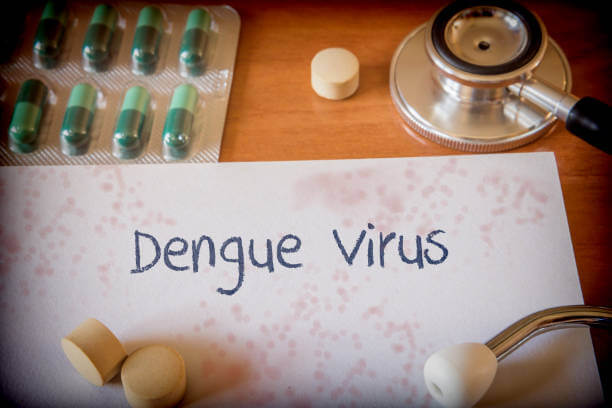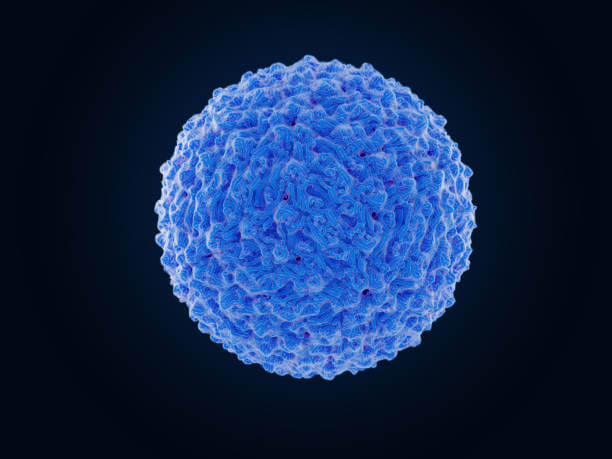9 Nov, 2024 | Muhammad Aleem | No Comments
A Comprehensive Overview on DENGUE VIRUS
DENGI Virus and Its Associated Diseases: ok
The DENGI contagion, also known as Dengue contagion, is a mosquito- borne viral infection that affects millions of people worldwide. This composition aims to give a comprehensive understanding of the DENGI contagion and its associated conditions, including its symptoms, transmission, forestallment, and treatment options.
What’s DENGI Virus?
The DENGI contagion belongs to the Flaviviridae family and is transmitted through the bite of infected, it has four serotypes.. , DENGI- 2, DENGI- 3, and DENGI- 4, each able of causing severe illness in humans.
II. Symptoms of DENGI Virus Infection
1. Dengue Fever
o High fever
o Severe headache
o Joint and muscle pain
o Rash
o Nausea and puking
o Mild bleeding( nose or epoxies)
2. Dengue Hemorrhagic Fever( DHF)
o All symptoms of dengue fever
o patient vomiting
o Organ failure
3. Dengue Shock Pattern( DSS)
o All symptoms of DHF
o Cold and glacial skin
o Rapid twinkle
III. Transmission of DENGI Virus
Aedes mosquitoes are the primary vectors responsible for transmitting the DENGI contagion. These mosquitoes thrive in tropical and tropical regions, making them current in numerous corridor of the world. The contagion can be transmitted when a mosquito bites an infected person and also latterly bites another existent, thereby spreading the infection.
IV. Prevention and Control Measures
1. barring Mosquito parentage spots
o Regularly empty and clean holders that collect stagnant water.
o duly cover water storehouse holders.
o Maintain clean and unstopped rainspouts.
2. Personal Protection
o Use mosquito repellents containing DEET, picaridin, or oil painting of bomb eucalyptus.
o Install window and door defenses to help mosquito entry.
o Use bed nets treated with germicides.
3. Community sweats
o Conduct regular vector control programs.
o Educate communities about DENGI contagion forestallment.
o Promote proper waste operation practices.
Opinion and Treatment
1. opinion
o Blood tests( ELISA and PCR) to descry the presence of the contagion.
2. Treatment
o Rest, hydration, and pain relief for mild cases.
o Hospitalization and intravenous fluids for severe cases.
o Blood transfusion in case of severe bleeding.
o Close monitoring of vital signs and organ function.
VI. Implicit Complications and Long- Term goods
1. Organ Damage
o Liver damage
o Heart problems
o Neurological complications
2. Post-Dengue Syndrome
o patient fatigue
o Muscle and joint pain
o Depression and anxiety
VII. exploration and Development sweats
Scientists and experimenters worldwide are laboriously involved in developing vaccines and antiviral specifics to combat the DENGI contagion. Ongoing studies aim to enhance forestallment strategies, ameliorate individual styles, and discover implicit remedial interventions.
the Different Types of Dengue Dengue 1, Dengue 2, Dengue 3, and Dengue 4
preface
It’s current in tropical and tropical regions, causing millions of cases worldwide each time. The dengue contagion has four distinct serotypes, known as Dengue 1, Dengue 2, Dengue 3, and Dengue 4.
Dengue 1
Dengue 1, also appertained to as DEN- 1, is one of the four serotypes of the dengue contagion. It was first linked in the 1950s and is current in numerous regions across the globe. Dengue 1 is responsible for a significant number of dengue cases and outbreaks. The symptoms of Dengue 1 infection are analogous to other serotypes and include high fever, severe headache, joint and muscle pain, rash, and fatigue. In some cases, Dengue 1 can lead to severe dengue, a potentially life- hanging condition characterized by tube leakage, organ impairment, and bleeding.
II. Dengue 2
Dengue 2, or DEN- 2, is another serotype of the dengue contagion. It’s known to beget pandemics and has been associated with severe dengue cases. Dengue 2 shares analogous symptoms with other serotypes, including fever, headache, muscle and joint pain, and rash. still, Dengue 2 infections have been linked to a advanced threat of severe dengue, especially in individualities who have been preliminarily infected with a different serotype. Severe dengue can affect in organ damage, hemorrhage, and indeed death if not duly managed.
III. Dengue 3
Dengue 3, or DEN- 3, is a serotype that has been responsible for large- scale pandemics in colorful corridor of the world. It’s known to beget severe dengue cases, particularly in individualities who have been preliminarily infected with a different serotype. The symptoms of Dengue 3 are analogous to other serotypes and include high fever, severe headache, joint and muscle pain, rash, and fatigue. It’s important to note that while Dengue 3 can beget severe illness, prompt medical intervention and probative care can significantly ameliorate issues.
IV. Dengue 4
Dengue 4, or DEN- 4, is the fourth serotype of the dengue contagion. It’s less common compared to the other serotypes but has been associated with outbreaks in certain regions. Dengue 4 infections present analogous symptoms to other serotypes, including fever, headache, muscle and joint pain, and rash. Like the other serotypes, Dengue 4 can also lead to severe dengue, especially in individualities who have been preliminarily infected with a different serotype. Beforehand discovery, proper medical care, and mosquito control measures are pivotal in managing Dengue 4 infections and precluding complications.
Conclusion
DENGI contagion- related conditions pose a significant global health challenge, affecting millions of individualities each time.
Understanding the different serotypes of the dengue contagion is essential for effective forestallment, opinion, and operation of dengue fever. Dengue 1, Dengue 2, Dengue 3, and Dengue 4 all have the eventuality to beget severe illness and complications, particularly in individualities who have been preliminary infected with a different serotype. It’s important to flash back that there’s presently no specific antiviral treatment for dengue fever, and probative care remains the dependence of operation. Prevention strategies similar as mosquito control, proper sanitation, and particular defensive measures are pivotal in reducing the transmission of the dengue contagion. By staying informed and taking necessary preventives, we can work towards minimizing the impact of dengue fever and guarding our communities from this potentially enervating complaint

Next… top 05 disease in the US
Sports blog for you… The soccer world



Write Reviews
Leave a Comment
No Comments & Reviews